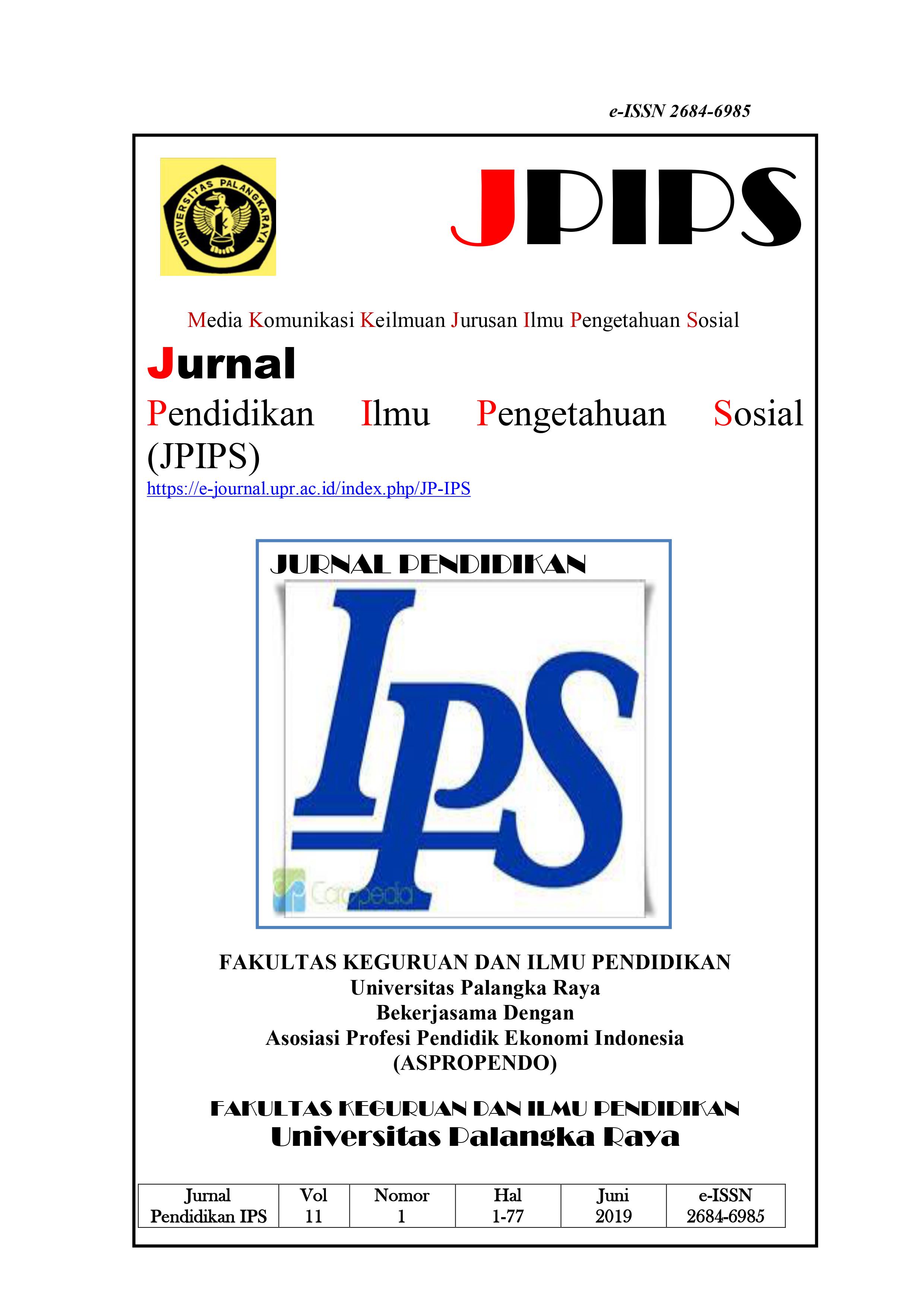The Effect of Student’s Motivation on Academic Achievement
DOI:
https://doi.org/10.37304/jpips.v15i1.9552Keywords:
Motivation, Achievement, Student’sAbstract
This quantitative study aims to investigate how intrinsic motivation affects students' performance in the Management degree at FEB Palangka Raya University. Purposive sampling was utilized to choose 123 students from the class of 2022 to participate in a survey. Participants' desire to learn was rated on a scale of 1–100 using the questionnaire, and their first-semester academic performance was evaluated using their individual version (IP) grade point average. EViews 12 was used to do the statistical analysis of the data. Students' grades (Y) were shown to be highly impacted by their level of learning motivation (X). The results of the statistical analysis, conducted using EViews 12, showed that there is a strong correlation between students' level of intrinsic motivation and their academic performance. Specifically, this study found that students who have higher levels of intrinsic motivation tend to have better academic performance than those who have lower levels of intrinsic motivation.
Downloads
References
Amrai, K., Motlagh, S. E., Zalani, H. A., & Parhon, H. (2011). The relationship between academic motivation and academic achievement students. Procedia-Social and Behavioral Sciences, 15, 399–402. Elsevier.
Askari, J. (2006). Assessment of risk factors of motivational deficiencies in university students from their viewpoints. Iranian journal of psychiatry and clinical psychology, 11(4), 455–462. Iranian Journal of Psychiatry and Clinical Psychology.
Brophy, J. E. (2013). Motivating students to learn. Routledge.
Dembo, M. H., & Seli, H. (2008). Motivation and learning strategies for college success. Routledge.
Dhea, C. A. R. (2019). ANALISIS MOTIVASI BELAJAR MATEMATIKA MAHASISWA PROGRAM STUDI PENDIDIKAN MATEMATIKA DI UNIVERSITAS MUHAMMADIYAH MALANG. University of Muhammadiyah Malang.
Dweck, C. S. (2000). Self-theories: Their role in motivation, personality, and development. Psychology press.
Dweck, C. S., & Elliot, A. J. (2005). Handbook of competence and motivation. Guilford Press New York.
Entwistle, N. (2000). Promoting deep learning through teaching and assessment: conceptual frameworks and educational contexts. TLRP conference, Leicester (Vol. 1, hal. 12).
Gunova, R. H. (2019). Hubungan Antara Kecerdasan Emosional Dengan Prestasi Akademik Pada Mahasiswa Aktivis Bem Fakultas Di Uin Suska Riau. Universitas Islam Negeri Sultan Syarif Kasim Riau.
Hassanzadeh, R., & Amuee, N. (2001). Angizesh baraye yadgiry (as nazariyye ta amal). Stapic DJ (Author). Tehran: Donyaye pajohesh.
Huitt, W. (2011). Motivation to learn: An overview: Educational Psychology Interactive. Valdosta, GA: Valdosta State University.
Koesma. (2003). Prestasi Belajar Di Perguruan Tinggi Di Tinjau Dari Faktor-Faktor Di Dalam Dan Luar Diri Mahasiswa.
Krathwohl, D. R. (2002). A revision of Bloom’s taxonomy: An overview. Theory into practice, 41(4), 212–218. Taylor & Francis.
Manurung, T. M. S. (2017). Pengaruh motivasi dan perilaku belajar terhadap prestasi akademik mahasiswa. JAS-PT (Jurnal Analisis Sistem Pendidikan Tinggi Indonesia), 1(1), 17–26.
Masaali, S. (2007). Relationship between reading study and academic achievement among students in IU. disseration]. Isfahan: Khorasgan Slamic Azad University.
McInerney, D. M., Roche, L. A., McInerney, V., & Marsh, H. W. (1997). Cultural perspectives on school motivation: The relevance and application of goal theory. American educational research journal, 34(1), 207–236. Sage Publications.
McInerney, D. M., Yeung, A. S., & McInerney, V. (2001). Cross-cultural validation of the Inventory of School Motivation (ISM): Motivation Orientations of Navajo and Anglo students. Journal of Applied Measurement. Richard M Smith.
Mohamadi. (2006). (Translator), Educational psychology: theory and practice. Slavin RE (Author). Tehran:Virayesh.
Pintrich, P. R. (1999). The role of motivation in promoting and sustaining self-regulated learning. International journal of educational research, 31(6), 459–470. Elsevier.
Ryan, R. M., & Deci, E. L. (2000). Intrinsic and extrinsic motivations: Classic definitions and new directions. Contemporary educational psychology, 25(1), 54–67. Elsevier.
Saifuddin, A. (2022). Psikologi Umum Dasar. Prenada Media.
Sh, G. K. (2004). Identifying the strategies improving academic motivation in high school students in the city Dezfoul from the principals’ and teachers’ perspective in the academic year 03-04.[disseration. Isfahan, Iran. School of educational scaiences. Azad University of Khorasgan.
Shahraray, M. (2007). Angizesh dar taalim va tarbieyat. Pintrich P, Shonk D (Author). Tehran: Elm.
Sidabutar, M. (2020). Pengaruh motivasi belajar terhadap prestasi akademik mahasiswa. Epistema, 1(2), 117–125.
Skaalvik, E. M., & Skaalvik, S. (2006). Self-Concept And Self-Efficacy In Mathematics: Relation With Mathematics. The Concept of Self in Education, Family, and Sports, 51. Nova Publishers.
Steinberg, L. D. (2014). Age of opportunity: Lessons from the new science of adolescence. Houghton Mifflin Harcourt.
Sugiyono. (2014). Metode Penelitian Kuantitatif, Kualitatif dan R&D. Bandung: Alfabeta.














